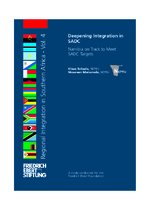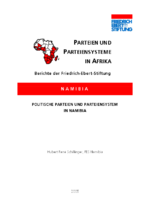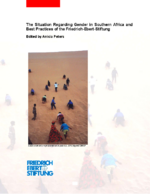Namibia
Namibia and Germany share a common history. The reappraisal of the genocide committed against the Herero and Nama under German colonial rule shapes bilateral relations. The return of looted cultural belongings and human remains as well as the reconciliation agreement, which is currently being negotiated between Namibia and Germany, are important first steps towards a joint process of coming to terms with the historical injustice and reconciliation.
The former liberation movement and today`s ruling party, South West African People's Organisation (SWAPO), has governed Namibia since independence in 1990. The opposition is split into several parties, but has gained influence in recent years and is involved in government at local level. Despite a considerable wealth of raw materials and great potential for the production of green hydrogen, which is in high demand internationally, Namibia has not yet succeeded sufficiently in turning economic growth into prosperity for the population at large. Unemployment is high and more than half of young people are without jobs. The majority of Namibians work in the informal sector. The distribution of income and wealth is one of the most unfair ones in the world. The expansion of social security instruments, the regulation of the growing raw materials sector and greater participation of social actors in the country's strategic political and economic decisions are therefore important challenges in Namibia, alongside inclusive dialogue to come to terms with the past.
The Friedrich-Ebert-Stiftung (FES) has been working in Windhoek since 1989. Together with its partners in political parties, trade unions, civil society and academia, FES actively contributes to the dialogue on reconciliation, to strengthening political participation, party dialogue and social security systems, as well as to a socially and gender just economic development.
Windhoek is also the location of the FES Media Competence Centre, which is active throughout sub-Saharan Africa.
You can find more information about our work in Namibia on the website of the country project.
Publications
Schade, Klaus; Matomola, Moureen
Deepening integration in SADC
Gaborone, 2006, 2007
Download (PDF) (3,5 MB PDF-File)
Schillinger, Hubert René
Politische Parteien und Parteiensystem in Namibia
The situation regarding gender in Southern Africa and best practices of the Friedrich-Ebert-Stiftung
Windhoek, 2005
Download (PDF) (2760 KB, PDF-File)
Bussiek, Hendrik
Long walks to media freedom
Bonn, 2003
Go to Publication (140 KB, Text)
Du Pisani, André
The security sector and the State in Namibia
Berlin, 2003, 2007




